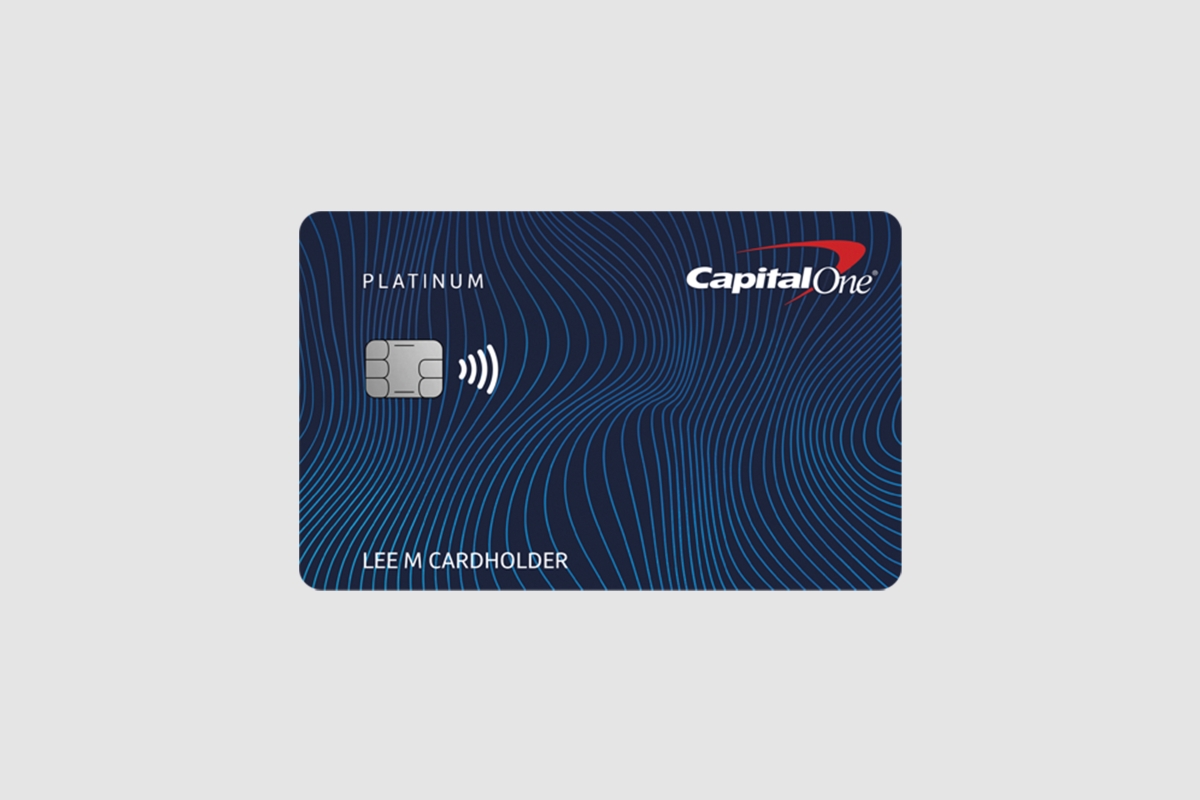Home>Finance>What Happens If I Exceed My Credit Limit With Capital One


Finance
What Happens If I Exceed My Credit Limit With Capital One
Published: March 5, 2024
Find out the consequences of exceeding your credit limit with Capital One and how it can impact your finances. Learn how to manage your credit wisely.
(Many of the links in this article redirect to a specific reviewed product. Your purchase of these products through affiliate links helps to generate commission for LiveWell, at no extra cost. Learn more)
Table of Contents
**
Introduction
**
Understanding the ins and outs of your credit card’s terms and conditions is crucial for maintaining healthy financial habits. One important aspect to grasp is your credit limit, which serves as a financial safety net and a crucial factor in your overall credit health. However, life can be unpredictable, and there may be instances where you inadvertently surpass your credit limit. This article aims to shed light on the implications of exceeding your credit limit with Capital One, a leading financial institution, and how it can impact your financial well-being.
Exceeding your credit limit can have significant repercussions, ranging from financial penalties to a negative impact on your credit score. It’s essential to be aware of the potential consequences and understand your options for rectifying the situation. By delving into the details of Capital One’s policies and the broader implications of surpassing your credit limit, you can equip yourself with the knowledge needed to navigate this challenging scenario effectively.
Understanding Your Credit Limit
Before delving into the potential repercussions of surpassing your credit limit with Capital One, it’s essential to comprehend the concept of a credit limit itself. Your credit limit represents the maximum amount of money that Capital One is willing to extend to you as a line of credit. It’s not only a financial safeguard for the credit card issuer but also a crucial tool for managing your spending and maintaining a healthy credit profile.
Capital One determines your credit limit based on various factors, including your credit history, income, and overall creditworthiness. It serves as a fundamental parameter for your financial activities, dictating the maximum amount you can charge to your credit card. Responsible utilization of your credit limit is pivotal for demonstrating financial prudence and reliability to lenders and credit bureaus.
Monitoring your credit utilization ratio, which is the percentage of your credit limit that you’re using at any given time, is integral to managing your credit effectively. Keeping your credit utilization below 30% is generally advisable, as it demonstrates responsible credit usage and can positively impact your credit score.
Understanding the nuances of your credit limit empowers you to make informed financial decisions and maintain a positive credit standing. By being cognizant of your credit limit and its implications, you can navigate your financial journey with prudence and foresight.
Consequences of Exceeding Your Credit Limit
Exceeding your credit limit with Capital One can have far-reaching consequences that extend beyond the immediate financial impact. When you surpass your credit limit, it signifies that you’ve utilized more credit than the issuer has authorized, potentially signaling financial distress or irresponsible money management. As a result, several ramifications may ensue, affecting both your immediate financial standing and your long-term credit health.
One prominent consequence of exceeding your credit limit is the imposition of overlimit fees and penalties. Capital One may levy a fee for each billing cycle during which your balance exceeds the credit limit. These fees can exacerbate your financial burden, leading to increased debt and financial strain. Moreover, exceeding your credit limit may trigger an increase in your interest rate, compounding the financial impact of this transgression.
Beyond the financial penalties, surpassing your credit limit can also harm your credit score. Credit utilization, which is a key component of credit scoring models, plays a pivotal role in determining your creditworthiness. Exceeding your credit limit can inflate your credit utilization ratio, potentially causing a significant drop in your credit score. A lower credit score can impede your ability to secure favorable loan terms, obtain new credit, or even impact non-financial aspects of your life, such as housing and employment opportunities.
Furthermore, exceeding your credit limit may strain your relationship with Capital One and jeopardize your eligibility for credit limit increases or other favorable terms in the future. It can erode the trust between you and the issuer, potentially limiting your access to beneficial financial products and services.
Understanding the multifaceted consequences of surpassing your credit limit underscores the importance of prudent financial management and responsible credit utilization. By being mindful of your credit limit and its implications, you can mitigate the risk of encountering these detrimental outcomes and safeguard your financial well-being.
Overlimit Fees and Penalties
When you exceed your credit limit with Capital One, you may face a series of financial penalties and fees that can exacerbate your financial burden. These consequences can significantly impact your overall credit health and strain your financial resources, underscoring the importance of prudent credit management.
Capital One typically imposes overlimit fees when cardholders surpass their credit limits. These fees, which are charged for each billing cycle during which the account remains over the limit, can quickly accumulate and contribute to an inflated balance. The specific amount of the overlimit fee may vary based on the terms outlined in your credit card agreement, but it generally adds to the financial strain caused by exceeding your credit limit.
Aside from overlimit fees, surpassing your credit limit may trigger an increase in your interest rate. Capital One reserves the right to apply penalty interest rates when cardholders exceed their credit limits, leading to higher finance charges on the outstanding balance. This can result in a compounding effect, as the higher interest charges contribute to a larger overall balance, further amplifying the financial repercussions of this transgression.
Moreover, the imposition of overlimit fees and penalties can perpetuate a cycle of indebtedness, making it increasingly challenging to regain control of your financial situation. The additional financial burden imposed by these fees can impede your efforts to pay down the outstanding balance, potentially leading to prolonged financial stress and a protracted path to credit recovery.
It’s crucial to review the terms and conditions of your Capital One credit card agreement to gain a comprehensive understanding of the potential overlimit fees and penalties that may apply. By familiarizing yourself with these provisions, you can proactively manage your credit utilization and avoid the detrimental impact of exceeding your credit limit.
Effectively navigating the realm of overlimit fees and penalties necessitates a proactive approach to credit management, emphasizing the significance of responsible credit utilization and adherence to your credit limit.
Impact on Your Credit Score
Exceeding your credit limit with Capital One can have a profound impact on your credit score, influencing your overall creditworthiness and financial standing. Your credit score serves as a pivotal indicator of your credit management skills and plays a crucial role in determining your eligibility for future credit and loan products.
One of the primary factors contributing to your credit score is your credit utilization ratio, which represents the proportion of your available credit that you’re currently using. Exceeding your credit limit can inflate this ratio, signaling to credit bureaus that you may be financially overstretched or struggling to manage your credit responsibly. As a result, your credit score may experience a significant decline, potentially hindering your ability to secure favorable loan terms or new lines of credit.
A lower credit score can have far-reaching implications, impacting not only your financial endeavors but also non-financial aspects of your life. For instance, a diminished credit score may affect your prospects for securing housing or employment, as many landlords and employers conduct credit checks as part of their evaluation process. Additionally, a lower credit score may lead to higher interest rates on future credit products, resulting in increased borrowing costs over time.
Furthermore, a diminished credit score can impede your ability to qualify for competitive credit card offers, favorable insurance premiums, and other financial opportunities that are typically extended to individuals with strong credit profiles. This underscores the pervasive impact of exceeding your credit limit and the critical importance of maintaining a responsible approach to credit management.
It’s essential to recognize that the repercussions of exceeding your credit limit can extend well beyond the immediate financial penalties, permeating various facets of your financial and personal life. By prioritizing prudent credit utilization and adhering to your credit limit, you can safeguard your credit score and fortify your financial foundation for the future.
Understanding the intricate link between exceeding your credit limit and its impact on your credit score underscores the significance of responsible credit management and the enduring implications of this financial transgression.
Options for Dealing with Exceeded Credit Limit
When faced with the challenge of exceeding your credit limit with Capital One, it’s imperative to explore proactive measures to address this situation and mitigate its impact on your financial well-being. By navigating the available options for managing this scenario, you can regain control of your credit utilization and chart a course toward financial recovery.
One viable option for addressing an exceeded credit limit is to promptly reduce your outstanding balance below the approved credit limit. This entails making a payment to bring your balance within the permissible threshold, thereby rectifying the overage and alleviating the associated financial penalties. By prioritizing the reduction of your outstanding balance, you can mitigate the impact of overlimit fees and work toward restoring your financial equilibrium.
Engaging in proactive communication with Capital One can also be instrumental in addressing an exceeded credit limit. Contacting the issuer to discuss the circumstances that led to the overage and demonstrating your commitment to rectifying the situation can foster a constructive dialogue. Capital One may offer guidance or potential solutions to help you navigate this challenge effectively, potentially mitigating the financial repercussions and preserving your credit standing.
Another avenue to explore is requesting a credit limit increase from Capital One. By expanding your approved credit limit, you can create a buffer that accommodates your current balance, effectively addressing the exceeded credit limit. However, it’s crucial to approach this option judiciously, considering your overall financial capacity and the potential implications of a credit limit increase on your credit profile.
If you find it challenging to manage your credit utilization effectively, devising a comprehensive budget and spending plan can be instrumental in preventing future occurrences of exceeding your credit limit. By delineating clear parameters for your spending and adhering to a structured budget, you can proactively manage your finances and avoid surpassing your credit limit in the future.
Ultimately, exploring these options and taking proactive steps to address an exceeded credit limit underscores your commitment to responsible credit management and financial prudence. By leveraging these strategies, you can navigate this challenging scenario with resilience and chart a course toward sustained financial well-being.
Conclusion
Exceeding your credit limit with Capital One can have multifaceted implications that extend beyond immediate financial penalties, permeating various aspects of your credit health and overall financial well-being. Understanding the nuances of your credit limit and the potential consequences of surpassing it is pivotal for navigating the realm of credit management effectively.
By comprehending the ramifications of exceeding your credit limit, you can adopt a proactive approach to address this scenario and mitigate its impact on your financial standing. Exploring options such as reducing your outstanding balance, engaging in constructive communication with Capital One, and implementing prudent budgeting practices can empower you to rectify the situation and fortify your credit health.
Moreover, recognizing the impact of exceeding your credit limit on your credit score underscores the enduring implications of this financial transgression. A diminished credit score can hinder your access to favorable credit terms, impact non-financial aspects of your life, and necessitate a protracted path to credit recovery. Therefore, prioritizing responsible credit utilization and adherence to your credit limit is paramount for safeguarding your credit score and fostering a resilient financial foundation.
As you navigate the intricacies of credit management, it’s essential to remain vigilant and proactive in monitoring your credit utilization and adhering to the parameters of your credit limit. By equipping yourself with the knowledge and strategies needed to manage your credit effectively, you can steer clear of the pitfalls of exceeding your credit limit and cultivate enduring financial stability.
Ultimately, by embracing responsible credit management practices and leveraging the available resources and options, you can navigate the challenges posed by exceeding your credit limit with resilience and chart a course toward sustained financial well-being.














